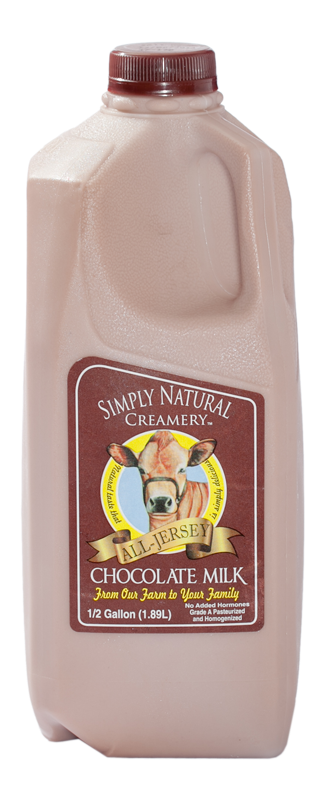
Awards
We recently won several awards from the Jersey Cattlemen Association. In fact, we won every award except one! Here is what we won:
- The Don Wesen Silver Quality Milk Producer Award for the highest quality and healthiness for a Jersey herd size 100-250. This award means our cows are the healthiest and produce the “cleanest” and healthiest milk!
- The Myatt-Lutz Cup for the highest producing Jersey cow in NC for 2014
- The Ray Mayne Trophy for the highest producing 2 yr old Jersey Cow in NC
- 305 Day Records Award for the highest milk producing Jersey Cow in NC in 2014
- Greene County Visionary Award to Neil Moye
Links
Check out these links for some great information on the benefits of milk and dairy products.
Chocolate Milk: The New Sports Drink!
by Cheryl Hayn
The research keeps coming: More than 20 studies support the benefits of recovering with the high-quality protein and nutrients in chocolate milk after a tough workout.
Most of the studies have been done with low-fat chocolate milk, but more and more athletes are turning to any kind of chocolate milk after a workout, depending on their needs:
Your SUDIA staff has been touting the benefits of chocolate milk far and wide: at the finish line of marathons and other races; in conjunction with the processors' checkoff program, MilkPEP; at high school coaches' conferences; and in athletic departments and with sports dietitians of major colleges and universities across the Southeast.
In fact, we have placed milk coolers filled with chocolate milk in over 35 college athletic departments, including Virginia Tech, North Carolina State, the University of Georgia, Georgia Tech, the University of Alabama, Mississippi State, the University of Kentucky, the University of Tennessee and Louisiana State University.
That doesn't count the cafeteria milk dispensers that SUDIA has provided to college cafeterias that serve both chocolate and white milk.
Total flavored milk volume sales have remained strong in 2015: through May of this year sales are up 3.2 percent.
As football season approaches, we are expecting winning teams from all these schools because their athletes are fueling up with chocolate milk!
U.S. Women's Soccer Star Kelly O'Hara tweeted: "First post World Championship run in the GA humidity. Woof. Thank goodness for chocolate milk. #BuiltIt"

- Chocolate milk is a natural source of high-quality protein to build lean muscle.
- It also contains the right mix of protein and carbohydrates, which has been scientifically proven to refuel exhausted muscles and help return to peak potential.
- Chocolate milk also provides fluids and electrolytes – like calcium, potassium, magnesium and sodium – to rehydrate and help replenish critical nutrients lost in sweat.
Health Benefits of Dairy
Dairy is packed with nutritional value. Milk is a Nutrient Powerhouse
Many people know dairy foods are an important source of nutrients for growing children and teens. Milk and other dairy foods, however, are great sources of protein, calcium and vitamins for people in all walks of life, including adults, seniors and athletes. Dairy products are loaded with essential vitamins and minerals, including carbohydrates, protein, calcium, phosphorus, potassium, vitamins A, D, B12, riboflavin and niacin. Just one 8-ounce serving of milk has 8 grams of protein, which builds and repairs muscle tissue (an equal serving of almond beverage has only 1 gram of protein). One serving of milk also meets the daily values (DV) for the following nutrients (based on Food and Drug Administration guidelines):
- Calcium – 30 percent: Helps build and maintain strong bones and teeth
- Riboflavin – 25 percent: Supports body growth, red blood cell production and metabolism
- Phosphorus – 25 percent: Strengthens bones
- Vitamin D – 25 percent: Helps promote the absorption of calcium
- Vitamin B – 22 percent: Helps convert food into energy Potassium – 11 percent: Regulates fluid balance and helps maintain normal blood pressure
- Vitamin A – 10 percent: Promotes good vision and healthy skin
- Niacin – 10 percent: Promotes proper circulation
Dairy's Health Benefits
Bone Health
Today there are 10 million Americans with osteoporosis and an additional 18 million with low bone mass—putting them at risk for osteoporosis. Women are four times more likely to develop the disease, but older men are also susceptible. Although more research is needed to understand the role of dietary protein on bone health, studies show the protein and calcium in milk may play a critical role in bone health and density, thereby decreasing the risk for osteoporosis. Three daily servings of low-fat or fat-free dairy provide essential nutrients that work together to build strong bones. Researchers have found:
- Postmenopausal women who consumed a diet low in protein were associated with having a 44 percent increase in the risk of osteoporotic fractures and women who consumed a diet low in calcium were associated with having a 29 percent increase in osteoporotic fractures (Melton, LJ, et al. Relative Contributions of Bone Density, Bone Turnover, and Clinical Risk Factors to Long-Term Fracture Prediction. Journal of Bone and Mineral Research. 2003; 18: 312-318).
- Low protein diets may decrease intestinal calcium absorption – and are associated with reduced bone mass in most observational studies (Kerstetter, J.E. et al. Low Protein Intake: The Impact on Calcium and Bone Homeostasis. The Journal of Nutrition. 2003; 133: 855S-861S).
- Eating foods rich in calcium may offset a possible protein-calcium loss relationship (Dawson-Hughes, B. Interaction of Dietary Calcium and Protein in Bone Health in Humans. The Journal of Nutrition. 2003; 133: 852S-854S).
Healthy Weight
The rise of overweight and obese children and adults is of great concern, because excess body weight can significantly increase the risk of heart disease, hypertension, type 2 diabetes, certain types of cancer and other diseases. Several scientific studies suggest dairy foods (milk, yogurt and cheese) play a beneficial role in maintaining a healthy weight. Today, many Americans are overweight and undernourished, because we are choosing not to eat nutrient-rich foods or lack access to them. Many people fail to consume recommended amounts of calcium, mainly due to a low intake of dairy foods. Multiple observational studies show people who consume more calcium and dairy foods weigh less and/or have less body fat than those who consume little or no dairy.
Heart Health / Blood Pressure Control
Calcium, potassium and magnesium—minerals all found in dairy foods—may play an important role in maintaining healthy blood pressure. Potassium, in particular, helps regulate fluids and mineral balance in the body to maintain a healthy blood pressure. This is an important role, considering one in three Americans is living with hypertension. Without consuming three servings of dairy foods daily, it may be difficult to meet potassium requirements.
The Dietary Guidelines for Americans encourage children and adults to enjoy three servings of low-fat or fat-free milk, cheese or yogurt each day. Potassium plays such an important role in blood pressure regulation and stroke prevention that the Food and Drug Administration has approved the use of this health claim for foods that are naturally low in sodium, fat and cholesterol and provide at least 350 mg of potassium per serving. Three servings of dairy foods contain a total of about 1200 mg of potassium.
Dairy Facts and Dairy Nutrition for the Athlete
Dairy nutrition helps athletes of all levels and ages get the perfect balance of nutrients to improve overall performance and health. From bone building to muscle strengthening, the dairy nutrients in flavored milk provide a variety of positive health benefits. Low-fat chocolate milk is the drink of choice for many athletes for several reasons. Low-fat chocolate milk is:
- A delicious source of high-quality protein to build lean muscle, without the added sugar of most sports drinks
- The right carbohydrate-to- protein ratio scientifically proven to refuel and rebuild exhausted muscles
- A great source of vitamin A to support a healthy immune system and normal vision
- A great source of electrolytes, including calcium, potassium, sodium and magnesium to help replenish what’s lost in sweat
- A source of B vitamins for energy
- An excellent source of fluids for rehydration
- A source of calcium, vitamin D, phosphorus, protein and potassium to build and maintain strong bones and help reduce the risk for stress fractures
Rebuild Your Muscles
With 8 grams of high-quality protein in every 8-ounce serving, milk has what athletes need to build and rebuild muscle.
- Studies found people who drank regular or flavored milk after a rigorous workout experienced less exercise-induced muscle damage than those who drank typical sports drinks or water.
- In one study, post-exercise muscle biopsies in eight moderately trained male runners showed enhanced skeletal muscle protein synthesis after drinking 16 ounces of fat-free chocolate milk compared to when they drank a carbohydrate-only sports beverage with the same amount of calories. This enhancement is a sign that muscles were better able to repair and rebuild.
- In one study, healthy untrained volunteers were randomly assigned to receive a drink containing either different types of milk protein (casein or whey protein) or a placebo one-hour after performing a round of resistance training. Consumption of both types of milk protein brought about a similar positive net muscle protein balance, indicating whole protein consumption can stimulate muscle protein synthesis after resistance exercise, which over time can lead to increased muscle size and strength.
- Researchers have also hypothesized that a combination of “slow” and “fast” proteins like casein and whey—both found in dairy milk—is most effective for building muscle. Eight volunteers drank fluid milk or a soy protein beverage—equal in protein, carbohydrates, fat and calories—after a round of weight lifting. The researchers found that while both protein beverages (soy or milk) resulted in a positive net muscle protein balance and muscle protein synthesis, milk consumption after exercise resulted in a greater net muscle protein balance, and 34 percent more muscle protein synthesis compared to soy.
References
- Cockburn E, Hayes PR, French DN, Stevenson E, St Clair Gibson A. Acute milk-based protein-CHO supplementation attenuates exercise-induced muscle damage. Applied Physiology, Nutrition & Metabolism. 2008;33:775-783.
- Cockburn E, Stevenson E, Hayes PR, Robson-Ansley P, Howatson G, Effect of milk-based carbohydrate-protein supplement timing on the attenuation of exercise-induced muscular damage. Applied Physiology, Nutrition and Metabolism. 2010;35:270-277.
- Lunn WR, Colletto MR, Karfonta KE, Anderson JM, Pasiakos SM, Ferrando AA, Wolfe RR, Rodriguez NR. Chocolate milk consumption following endurance exercise affects skeletal muscle protein fractional synthetic rate and intracellular signaling. Medicine & Science in Sports & Exercise.2010;42:S48.
- Tipton K, Elliott T, Cree M, Wolf S, Sanford A, Wolfe R. Ingestion of casein and whey proteins result in muscle anabolism after resistance exercise. Medicine & Science in Sports & Exercise. 2004;36: 2073-2081.
- Wilkinson S, Tarnopolsky M, MacDonald M, MacDonald J, Armstrong D, Phillips S. Consumption of fat-free fluid milk after resistance exercise promotes greater lean mass accretion than does consumption of soy or carbohydrate in young, novice, male weightlifters. American Journal of Clinical Nutrition. 2007;85:1031–40.


